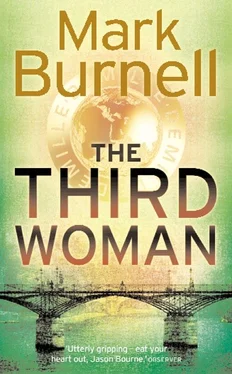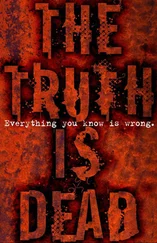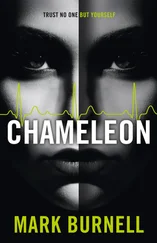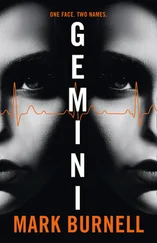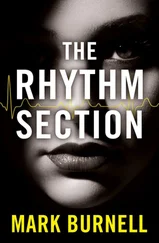‘Were you aware that it’s for sale?’
How many years was it since she’d been there? Four, perhaps? It felt longer. She’d rented it. The owner had been a German investment banker stationed in Tokyo. It was a beautiful place, a little run-down, terraces rising behind the house, olives, lemons, a vineyard falling away to the valley below, the house itself afloat on clouds of lavender bushes. She’d picked it as somewhere to hide from the world and had never wanted to leave.
‘The directors and I have discussed this and – with your permission, naturally – we have decided to acquire the property.’
Stephanie frowned. ‘I don’t understand.’
‘For you. As a token of our gratitude.’
‘I told you in Zurich that I would deal with Heilmann for free.’
‘Exactly so. And we would like you to view this gesture in the same spirit. Consider it a gift. From one friend to another.’
She reached across the table and took his hand. ‘Thank you, Albert. That’s so sweet of you. But I’ll need to think about it.’
‘Is that you, Petra?’
Ten-to-eleven. When the call came, she was sitting on the living-room floor, sorting through Marianne’s domestic bills, listening to Bright Red by Laurie Anderson. The track ‘Tightrope’ was on repeat.
Roland doesn’t know me as Petra . That was her first thought, quickly followed by another: it’s not his voice .
‘Who is this?’
‘Jacob Furst.’
Out of the blue. Or, to be accurate, out of the past.
Furst took her silence incorrectly. ‘You don’t remember me?’
‘Of course I remember you.’
Furst was an old man – in his late eighties now, she guessed – with each year etched into the timbre of his voice. Not surprising, given the life he’d led. And now she recognized the strangely distinct sound of that voice too; high and quavering, almost feminine.
‘I apologize for calling you like this but I need to see you. It’s urgent.’
Another thought was forming; this was Marianne’s mobile phone. How had Furst obtained the number? Through Cyril Bradfield, perhaps, a mutual friend. Stephanie felt Petra taking over, concern making way for pragmatism. ‘Where are you?’
‘Paris.’
Where Furst lived, so far as she knew. ‘I’m going away tomorrow but I’ll be back …’
‘Where are you ?’
She felt Petra’s reflex, her mobile had a German number. Did Furst imagine she was in Germany, or did he know that she was in Belgium?
‘I’m right … here .’
He seemed to understand. ‘Could you be in Paris tomorrow?’
‘I could be just about anywhere tomorrow.’
‘I would never have called you if I’d thought there was an alternative but …’
From what she remembered of Furst, that much was true. ‘What is it?’
‘I can’t say,’ he whispered. ‘Not over the phone.’
‘Can it wait?’
The pause undermined the lie that followed. ‘For two or three days, maybe.’
Stephanie pictured Furst; a small man with a crooked frame and surprisingly large hands. Miriam, his wife, was taller and broader.
‘Tell me this: is it the same as last time?’
His reply was barely audible: ‘Almost.’
Almost?
She said, ‘I can’t promise you anything.’
‘Will you try?’
No. Instinctively, that was what she felt. Petra hated situations like this. Unsolicited, unprepared. But there would be no easy escape here. There was a barrier in the way constructed of obligation and sentimentality.
‘One o’clock. If I’m not there by half-past, I’m not coming. Shall I come to your home?’
‘No.’
‘Where?’
‘The place we first met. Do you remember it?’
My carriage is almost empty on the Thalys train service from Brussels-Midi to Gare du Nord in Paris. Belgian countryside scrolls smoothly across my window at high speed, flat and brown beneath a grey sky, ploughed fields speckled with small woods and copses. The tops of the electricity pylons are lost in low, rolling cloud .
A woman in a dark red uniform pours me more coffee. In an hour I’ll be in Paris. In four, I’ll be hurtling through this same stretch of countryside in the opposite direction. In twelve, I’ll be at thirty-five thousand feet, heading for the Indian Ocean .
I’m not sure what I can achieve while I’m with Jacob Furst but I’ll manage something. Furst is a man with a fierce sense of honour; the kind of man to squirm under obligation. And he will feel obligated towards me, no matter how hard I try to persuade him not to be. The truth is, my debt of obligation is greater .
For almost sixty years Furst was one of the great document forgers. A gifted painter from childhood, he was faking masterpieces for wealthy clients by the time he was twenty. At the outbreak of the Second World War, he turned his talents to a more practical purpose, forging documents to help Jews fleeing Nazi persecution. Later, he joined the Resistance, creating papers for SOE agents dropped into France between 1942 and 1943, before his eventual capture. He survived for two years at Auschwitz. After the war, he developed the trade in forged documents for profit, protected by the legitimate screen of the family garment business .
He retired from his art – art being exactly what he considers it – in 1995 when the arthritis in his fingers began to affect the quality of his work. Over the years, Furst passed on his expertise to a small handful of apprentices. One of them was an Irish art student who was studying in Paris during the 1960s. His name was Cyril Bradfield .
Cyril has been creating independent identities for me as long as I’ve been Petra Reuter. In that sense he knows me better than any person alive. In the perverse way that logic works in my world, it seems appropriate that he’s the closest thing I have to a parent; after all, he’s fathered so many of me .
Cyril feels for Jacob Furst the way I feel for him. Which is why the only time he’s ever asked me for help was when it was on Furst’s behalf. It wasn’t a complicated situation, just undignified; an elderly man and his wife threatened by a crooked landlord and his troop of Neanderthal thugs .
That was four years ago and it was the only time I spent with Jacob and Miriam Furst. But we formed a bond. A bond that feels as strong today as it did then. It’s no exaggeration to say this: without Furst, there would have been no Cyril Bradfield for me, and without some of his documents, I’d probably be dead. But the reason I’m going to Paris is that I liked Furst. If I think of Cyril as a surrogate father it’s easy to think of Jacob and Miriam as surrogate grandparents. With some people, you don’t need time to make the connection; it just happens. Often, when you least expect it .
Twelve-fifty, boulevard de Sébastopol in Sentier. Stephanie dropped euro coins into the driver’s palm and climbed out of the taxi. Despite the hard rain, she wanted to walk the last bit. She entered rue Saint Denis from rue Réaumur and it was how she remembered it; clothes shops and garment wholesalers along either pavement, the road itself a narrow artery clogged by double-parked vans, their back doors open, rolls of fabric stacked for delivery. And noise everywhere; bleating horns, music, the rain, half a dozen shouted languages. At the intersection with rue du Caire a dozen Indian and Bangladeshi porters were loitering with trolleys, waiting to be summoned. In the doorways and alleys were the whores; oblivious to the weather, the wrong side of forty, sagging breasts and bloody make-up done no favours by the dismal daylight.
Читать дальше
